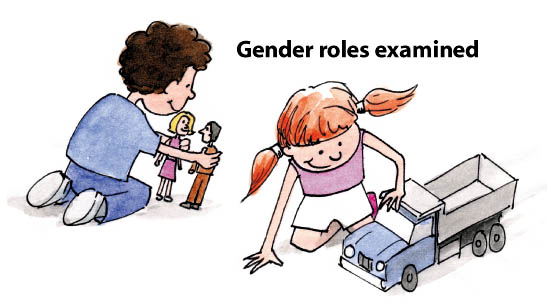On a recent trip to a Wilko’s store, I was
disappointed to see a range of children’s books both implicitly and explicitly
divided by gender. Do we not give children books to engage their imagination,
to expand their horizons and to bloom their creativity irrespective of their
gender? I was particularly drawn to two
colouring books titled, The Boy’s
Colouring Book and The Girls’
Colouring Book by publisher Buster Books pictured below.
As is clear from the books covers, the books perpetuate
stereotypical ideas of gender. Whilst we don’t fully know what effect the
influence of books could have on children’s understanding of gender, the messages that these books send merely reinforce patriarchal ideas of gender, and by perpetuating these ideas we are preventing equal opportunities. They
seem to suggest that only males have an interest in space travel, adventure, martial
arts, cars and construction, where female interests are limited to fashion,
motherhood and all things pretty. This is the wrong message we are sending our
children about gender. A good read
should be a good read for boys and girls, and a colouring book should just be a
colouring book.
The organisation, Let Toys Be Toys, who have successfully
campaigned with retailers to stop gender categorisation of toys, launched a
campaign against these books earlier in the year. The Let Books Be Books
campaign has highlighted the debate and has gained widespread support in its
struggle to challenge the publishers and retailers. I was assured by Wilko on twitter that they
plan to discontinue the range of gendered books, and I hope to see this come to
fruition as soon as possible.
Hi @XAntonio88X. We recognise the need to change how kids' books are promoted & are striving to ensure it is done in a gender neutral way
— Wilko (@LoveWilko) June 19, 2014
It is not only stereotypical gender representations that are
problematic in our children’s books, but it seems a female presence at all is
in minority. A report recently found that females are outnumbered by males
2:1 as central characters in British picture books. Where there are females they are all too often
products of gender stereotyping. To allow such gender divisions in books is o demean all our children. Children are not inherently born with certain interests, they are acquired through socialisation. It is
time to challenge these representations of gender, and pressure the retailers
and publishers so that all children can enjoy all books, regardless of the
genitalia they happened to be born with.



Comments
Post a Comment